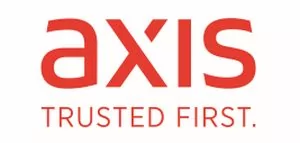- in United States
- within Tax, Criminal Law and Corporate/Commercial Law topic(s)
The COVID-19 pandemic may have given certain flexibility in paying bills or rents but certainly not in terms of complying with laws and regulations in relation to the prevention of money laundering and terrorist financing. The pandemic coincided with the listing of Mauritius on the FATF's grey list and the EU's blacklist and since then there is a high-level political commitment to get Mauritius out of the lists. This inevitably caused a drastic change in the regulatory landscape.
Increased scrutiny from AML CFT regulators
- The Financial Services Commission ("FSC") has, since March 2020, implemented a plan for 2020-2021 with a target to complete about 350 inspections on an annual basis. The inspections are AML/CFT focused and are risk based so it allows for dedicated AML/CFT supervisory attention to be directed to the riskiest sectors and entities under the FSC's supervisory purview. Follow-up inspections are also carried out to ensure that the remedial plans are being effectively implemented. The FSC is also working actively to monitor through offsite methods of supervision. The licensees of the FSC are those who have been licensed to carry out a financial services activity and include investment advisers, investment dealers, asset managers, insurers, insurance intermediaries amongst others. The inspections were, however, not limited to licensees of the FSC.
"THOSE WHO ARE CONSIDERED AS REPORTING PERSONS UNDER THE FINANCIAL INTELLIGENCE AND ANTI MONEY LAUNDERING ACT 2002 ("FIAMLA") WERE ALSO SUBJECT TO INSPECTIONS BY THEIR SUPERVISORY BODIES."
- These inspections were means to assess the compliance status and several areas were looked at including the AML/CFT policies and procedures, business risk assessment, Politically Exposed Person ("PEP") and targeted financial sanctions screening, customer due diligence, ongoing monitoring, training, independent audit, amongst others. With the considerable changes in the regulatory framework, it is important that organisations are able to keep pace and update their policies and procedures otherwise these can quickly become redundant. Reporting persons are required to carry out a business risk assessment to be able to make an assessment and provide a method by which the reporting person can identify the extent to which its business and its products and services are exposed to money laundering and terrorist. The business risk assessment was one of the common deficiencies noted by the FSC during inspections and this was highlighted in their deficiency letters.
- Another common deficiency noted was in respect of independent audit. Reporting persons are required to have an independent audit function to review and verify compliance with and effectiveness of the measures taken in accordance with the FIAMLA and regulations issued under it. The FSC recently added a whole chapter on independent audit in the AML Handbook to clarify the FSC's expectations of same. Apart from the common deficiencies, it is also important to have a system in place to help identify any transaction is being carried out with a PEP or a sanctioned person as these would call for additional measures. Appropriate customer due diligence documents should be on available as well as the risk rating assigned to the customer. Risks keep changing and hence it is important to maintain a thorough understanding of the business relationship and to appropriately monitor transactions in order to be in a position to detect, and subsequently report, suspicious activity. The inspectors also assess whether any training was provided to the employees and request to sight the training materials.
- The inspections should not be mistaken for a mere tick box exercise. The supervisory bodies have been given powers to take disciplinary actions against entities under their supervision including the imposition of administrative penalties. As part of its regulatory actions, the FSC has, in 2020, suspended five licences, revoked four licences, disqualified five officers and imposed two administrative penalties. It is expected that other supervisory bodies such as the Attorney General and the Financial Intelligence Unit, will follow in footsteps.
To view the full article please click here.
The content of this article is intended to provide a general guide to the subject matter. Specialist advice should be sought about your specific circumstances.


